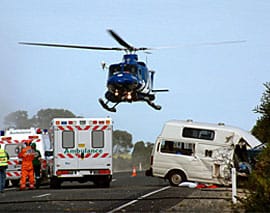How Does Paralysis Relate to a Spinal Cord Injury?
When we think about spinal cord injuries, paralysis often comes to mind. But what exactly is the connection between these two conditions? At The Law Offices of Keith Bregoff, we believe in educating our clients and the public about important medical and legal issues. This article will explore the relationship between paralysis and spinal cord injuries, shedding light on the potential legal implications.

Spinal Cord Injuries
The spinal cord is a crucial part of our body’s central nervous system. The spinal cord is a bundle of nerves and other tissues protected by the vertebrae of the spine. It runs from the base of the brain down through the spinal column. It is part of the central nervous system (CNS), which also includes the brain.
This type of injury happens when there is harm to any part of the organ or the nerves found towards the end of the cord. This damage can result from various causes like car accidents, falls, sports injuries, or acts of violence. When the spinal cord is injured, the communication between the brain and the body below the injury site is disrupted which leads to a range of symptoms – including paralysis.
The Link Between Spinal Cord Injuries and Paralysis
Paralysis is one of the most severe and life-altering consequences of a spinal cord injury. It refers to the loss of muscle function in part of the body. This loss can be partial or complete, temporary or permanent, depending on the severity and location of the spinal cord injury.
The reason spinal cord injuries often result in paralysis is due to the way our nervous system works. Our brain sends signals down the spinal cord to control different parts of our body. When the spinal cord is damaged, these signals can’t get through leading to a loss of function below the injury site.
For example, if someone suffers a spinal cord injury in their neck area, they might experience paralysis in their arms, legs, and torso – a condition known as quadriplegia. On the other hand, if the injury occurs in the lower back, it might result in paralysis of the legs and lower body, known as paraplegia.
Types of Paralysis Associated With Spinal Cord Injuries
Spinal cord injuries can cause different types of paralysis depending on where the damage occurs:
- Quadriplegia (or Tetraplegia): This affects all four limbs, the torso, and some organs. It results from injuries to the cervical (neck) region of the spinal cord.
- Paraplegia: This affects the lower half of the body, including the legs. It is caused by injuries to the thoracic, lumbar, or sacral regions of the spinal cord.
- Monoplegia: This involves paralysis in one limb, which is less common but can occur with partial spinal cord injuries.
- Hemiplegia: This affects one side of the body and is more often associated with brain injuries but can sometimes result from spinal cord injuries.
The Extent of Paralysis
The severity of paralysis also depends on whether the spinal cord injury is complete or incomplete. A complete injury means there’s no function below the level of injury – no sensation or voluntary movement. An incomplete injury, however, means there’s still some function below the injury level. People with incomplete injuries might have some sensation or movement in the affected areas.
It is important to note that the effects of a spinal cord injury are not always immediately apparent. Sometimes, swelling and bleeding around the spinal cord can cause symptoms to worsen in the days or weeks following the initial injury. This is why immediate and ongoing medical care is crucial for anyone who’s suffered a spinal cord injury.
While paralysis is a primary concern, spinal cord injuries can lead to a range of other health issues. These may include:
- Loss of bladder and bowel control
- Changes in sexual function and fertility
- Difficulty breathing or coughing
- Increased risk of blood clots and pressure sores
- Chronic pain
- Depression and other mental health challenges
These additional complications underscore the far-reaching impact of spinal cord injuries on a person’s life and highlight the need for comprehensive, long-term care and support.
Contact Our Legal Team for Help
The relationship between paralysis and spinal cord injuries is complex and far-reaching. Knowing this connection is crucial for anyone affected by these conditions whether directly or indirectly. At The Law Offices of Keith Bregoff, we are committed to supporting those impacted by spinal cord injuries. Call (772)-492-8967 today to speak with our dedicated team if you have any questions regarding the legal implications of spinal cord injuries.


